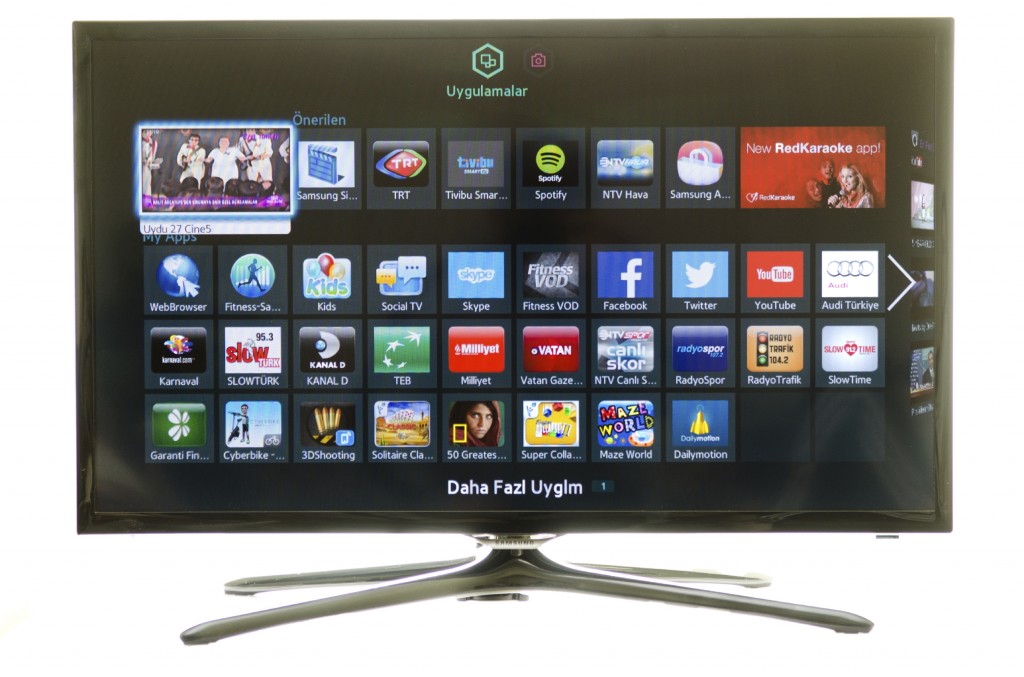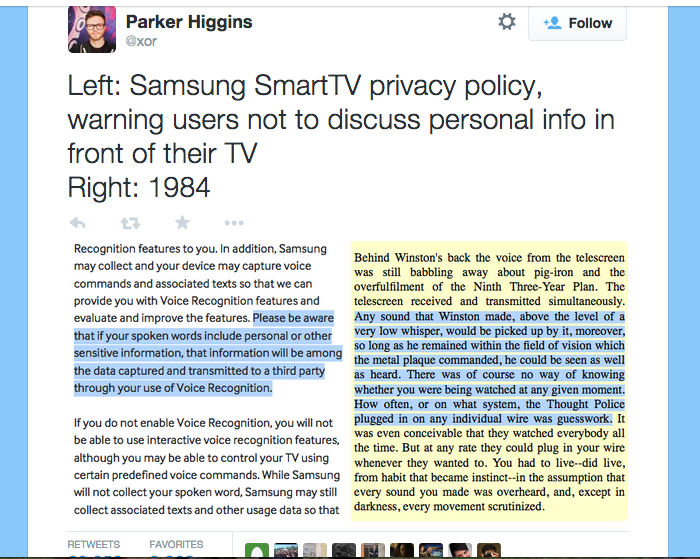Between the lawsuits filed in the hack of the nation’s second largest health insurer, Anthem, Inc., and the White House Summit on Cybersecurity and Consumer Protection at Stanford on Friday, cybersecurity dominated the conversation this week in Silicon Valley.
The public, however, is also facing concerns about privacy invasions from a source they might never suspect: their own televisions.
Samsung Electronics Co. came under fire this week after it was reported that the company’s new smart TVs could “listen” to viewers’ private conversations.

The Smart TVs feature a voice-recognition system that allows users to give verbal commands to the television, which customers and analysts worry could potentially be used to record private conversations and even share the information with a third party.
The system, designed for improved “ease of use” is activated either by issuing specific commands such as “change the channel” or “increase volume” into a microphone on the remote control, or by clicking the activation button. Users, however, still worry that the system could pick up sounds other than those intended for the television.
Public outrage on social media caused Samsung to address the worries directly on the company’s blog.
Samsung’s policy cautions customers to “please be aware that if your spoken words include personal or other sensitive information, that information will be among the data captured and transmitted to a third party through your use of Voice Recognition.”
A Feb. 10 post on the company’s blog entitled “Samsung Smart TVs Do Not Monitor Living Room Conversations,” stated that the voice recognition program could only pick up certain predetermined commands such as “increase the volume” or “change the command.”
Samsung further attempted to reassure customers that all data was encrypted. The company updated its privacy policy to state that Samsung will only collect interactive voice commands when users make a “specific search request,” which may be transmitted to the third-party service provider Nuance Communications, Inc. The company assured customers that their information would only be used to evaluate and improve voice recognition features.
The company’s efforts, however, failed to silence critics.
Electronic Frontier Foundation activist Parker Higgins, for example, tweeted a side-by-side photo comparing Samsung’s privacy policy to George Orwell’s dystopian novel “1984.” His remarks have been retweeted more than 20,000 times in fewer than five days.

The controversy even pushed U.S. Senator Al Franken (D-Minn.) to question the company’s policies. In a letter Feb. 11 letter to North America Chief Executive Officer Gregory, Franken wrote: “I am concerned that Samsung currently does not provide consumers with the information needed to understand how their voice data may be used by third parties.”
Sen. Franken sent a similar letter on Feb. 10 to LG Corp.’s U.S. President William Cho. LG is one of a number of companies whose smart televisions also feature voice-recognition technology. Franken claimed that the company’s privacy policy was unclear as to whether they shared data with a third party. The policy urges users to “be aware that if your spoken word includes personal or other sensitive information, such information will be among the Voice Information captured through your use of voice-recognition features.”
LG did not respond to a request for comment. But Samsung representatives say there is no cause for concern.
“Samsung does not retain voice data or sell it to third parties,” a Samsung spokesman told ABC News. “If a consumer consents and uses the voice recognition feature, voice data is provided to a third party during a requested voice command search. At that time, the voice data is sent to a server, which searches for the requested content then returns the desired content to the TV.”
Some technology analysts back up Samsung’s claims. For instance, Forbes technology contributor John Archer said in a Feb. 12 article:
“It’s hugely important to stress … that Samsung TVs don’t even start listening to you at all unless you fire their listening abilities up by using a keyword or, on some models, pressing a mic button on the control. So they’re not constantly sat [sic] there listening to every word you say.”
Still, in a climate of cybersecurity alert, companies like Samsung will likely have to work to regain customers’ trust.
“I feel a bit annoyed that … it wasn’t made clear to me in advance of buying the TV,” said smart TV owner Peter Kent in an interview with the BBC. “It makes me think twice.”
Speakers at Friday’s White House Summit on Cybersecurity and Consumer Protection held at Stanford University say they are equally committed to ensuring users’ privacy.
“If we don’t do everything we can to protect privacy, we risk more than money,” Apple Chief Executive Officer Tim Cook said. “We risk our way of life.”
